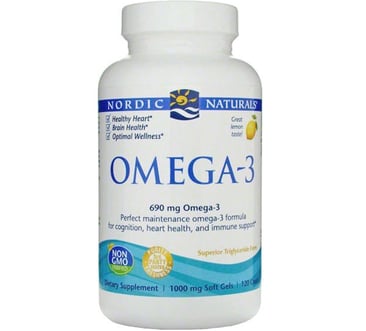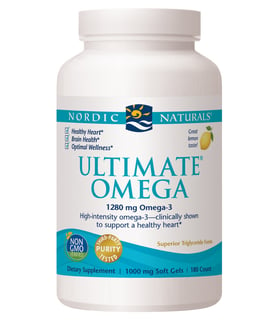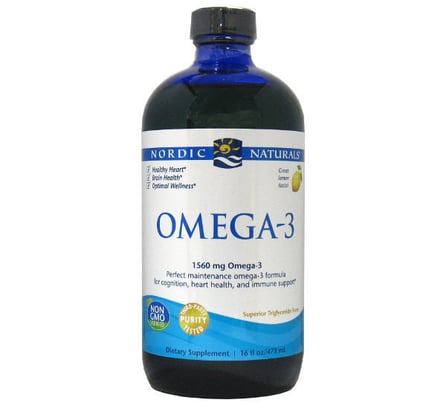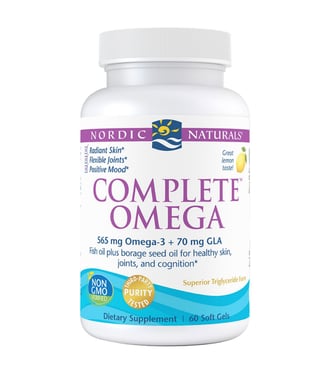
What to Know About Omega-3 Supplements for Overall Health: Essential Facts and Benefits
Omega-3 fatty acids play a crucial role in maintaining overall health and wellbeing. These essential fats support heart health, brain function, and may help reduce inflammation throughout the body. Many people turn to omega-3 supplements to ensure they're getting enough of these important nutrients in their diet.
12/28/20247 min read


Omega-3 fatty acids play a crucial role in maintaining overall health and wellbeing. These essential fats support heart health, brain function, and may help reduce inflammation throughout the body. Many people turn to omega-3 supplements to ensure they're getting enough of these important nutrients in their diet.
Omega-3 supplements, typically derived from fish oil or algae, can provide a concentrated dose of EPA and DHA, two key types of omega-3s that the body needs. While fatty fish like salmon and sardines are excellent natural sources, supplements offer a convenient alternative for those who don't consume enough fish or follow plant-based diets.
Before starting any new supplement regimen, it's important to consult with a healthcare provider. They can help determine if omega-3 supplements are appropriate based on individual health needs and potential interactions with medications. Quality and purity of supplements can vary, so choosing reputable brands is crucial for maximizing benefits and minimizing risks.
Understanding Omega-3 Fatty Acids
Omega-3 fatty acids are essential nutrients that play crucial roles in human health. These polyunsaturated fats contribute to various bodily functions and offer potential benefits for heart, brain, and overall well-being.
Types and Sources
There are three main types of omega-3 fatty acids: ALA (alpha-linolenic acid), EPA (eicosatetraenoic acid), and DHA (docosahexaenoic acid). ALA is found primarily in plant-based sources, while EPA and DHA are more abundant in marine sources.
Common sources of ALA include:
Flaxseeds and flaxseed oil
Chia seeds
Walnuts
Canola oil
EPA and DHA are typically obtained from:
Fatty fish (salmon, mackerel, sardines)
Fish oil supplements
Algae-based supplements (suitable for vegetarians and vegans)
The human body can convert ALA to EPA and DHA, but this process is inefficient. For this reason, direct consumption of EPA and DHA through fish or supplements is often recommended.
Health Benefits
Omega-3 fatty acids offer numerous potential health benefits. Research suggests they may:
Support cardiovascular health by:
Reducing triglyceride levels
Lowering blood pressure
Decreasing the risk of arrhythmias
Promote brain function and development, particularly in infants and children
Reduce inflammation throughout the body
Improve joint health and alleviate symptoms of rheumatoid arthritis
Support eye health and reduce the risk of age-related macular degeneration
Some studies also indicate that omega-3s may help with depression, ADHD, and cognitive decline in older adults. While more research is needed in these areas, the existing evidence highlights the importance of adequate omega-3 intake for overall health.
Evaluating Omega-3 Supplements
Proper evaluation of omega-3 supplements involves careful selection and understanding of product labels. These steps help ensure you choose a high-quality supplement that meets your nutritional needs.
Choosing the Right Supplement
When selecting an omega-3 supplement, consider the source of the omega-3s. Fish oil is a common and well-studied option, but algal oil provides a vegan alternative. Look for supplements that have been third-party tested for purity and potency.
Aim for products free from contaminants like mercury and PCBs. The form of omega-3s matters too - triglycerides are generally better absorbed than ethyl esters.
Consider your specific health goals. Some formulations target heart health, while others focus on brain function or joint support. Consult a healthcare provider to determine the most suitable option for your needs.
Reading Labels and Dosages
Omega-3 supplement labels can be confusing. Look for the amounts of EPA and DHA, the two most important omega-3 fatty acids, rather than just the total fish oil content.
A typical daily dose ranges from 250-1000 mg of combined EPA and DHA. Higher doses may be recommended for specific conditions under medical supervision.
Check the serving size - some products require multiple capsules to reach the stated dose. Be aware of added ingredients like vitamin E, which acts as a preservative.
Pay attention to storage instructions. Many omega-3 supplements require refrigeration to maintain freshness and prevent rancidity. Always check the expiration date before purchasing or consuming.
Below we have picked some of our favorite Omega-3 supplements from some of the most trusted brands.
1. Nordic Naturals Ultimate Omega contains double-strength EPA+DHA for high-intensity support. Provides all the omega-3 benefits in fewer soft gels.
Omega-3 EFA’s supports cardiovascular, respiratory and immune health. They support joint and tissue health as well as supporting healthy prostaglandin pathways.
Omega-3s support, eye health, brain and neurological function, mental focus and also support mood balance.
This product is Certified Sustainable by Friends of the Sea (FOS).
2. Nordic Naturals Ultimate Omega Liquid provides exceptionally high levels of EPA and DHA, delivering 2840mg of total omega-3s. It is ideal for individuals wanting high intensity, therapeutic support in a smaller serving. A great tasting lemon flavored fish oil.
Omega-3 EFA’s supports cardiovascular, respiratory and immune health. They support joint and tissue health as well as supporting healthy prostaglandin pathways.
Omega-3s support, eye health, brain and neurological function, mental focus and also support mood balance.
This product is Certified Sustainable by Friends of the Sea (FOS).
3. Nordic Naturals Complete Omega will help provide essential fatty acids (EFA’s) are nutrients that are essential for optimal health. They cannot be produced by the body so must be obtained through the diet and/or supplementation. DHA (docosahexaenoic acid) and EPA (eicosatetraenoic acid) are important omega-3 fatty acids.
Complete Omega is a high potency formula that blends the omega-3 essential fatty acids, EPA & DHA with the omega-6 essential fatty acid, GLA (Gamma-linolenic Acid). GLA is from borage seed oil. Distilled for purity, this is an ideal supplement to ensure adequate intake of essential fatty acids from both fish and plant source. The omega "multi" with a healthy balance of omegas-3, 6, and 9.
This omega-rich blend offers support for skin health (including hydration and texture), hair, nails as well as supporting dry flaky skin conditions. It may also support female hormonal balance.
The Role of Omega-3s in Disease Prevention
Omega-3 fatty acids play crucial roles in preventing and managing several chronic diseases. These essential nutrients impact cardiovascular health, brain function, and the body's inflammatory responses.
Heart Health
Omega-3s contribute significantly to cardiovascular well-being. They help reduce triglyceride levels in the blood, potentially lowering the risk of heart disease.
Studies show omega-3s can decrease blood pressure slightly and may help prevent the formation of harmful blood clots. These effects combine to support overall heart health.
Regular consumption of omega-3s, especially EPA and DHA, is associated with a reduced risk of sudden cardiac death and stroke. The American Heart Association recommends eating fatty fish twice a week to obtain these benefits.
Cognitive Function
Omega-3 fatty acids are essential for brain health throughout life. DHA, a type of omega-3, is a major structural component of brain cell membranes.
Research suggests omega-3s may help protect against age-related cognitive decline and reduce the risk of Alzheimer's disease. They support memory function and may improve mood in some individuals.
Pregnant women and young children can particularly benefit from adequate omega-3 intake. DHA is crucial for fetal brain development and may enhance cognitive performance in infants and children.
Inflammation and Immunity
Omega-3s possess potent anti-inflammatory properties. They can help reduce chronic inflammation, a factor in many diseases including arthritis and certain cancers.
These fatty acids produce compounds that resolve inflammation and promote healing. This effect may alleviate symptoms in inflammatory conditions like rheumatoid arthritis.
Omega-3s also support immune function. They enhance the activity of white blood cells, potentially boosting the body's ability to fight infections and diseases.
Some studies suggest omega-3s may help reduce the risk of certain autoimmune disorders, though more research is needed in this area.
Safety and Side Effects
Omega-3 supplements are generally considered safe for most people when taken as directed. However, they can have potential risks and interactions that consumers should be aware of.
Possible Interactions
Omega-3 supplements may interact with certain medications, especially blood thinners like warfarin. These interactions can increase the risk of bleeding. Individuals taking anticoagulants or antiplatelet drugs should consult their healthcare provider before starting omega-3 supplements.
Some studies suggest omega-3s might lower blood pressure. People on blood pressure medications should monitor their levels closely when taking these supplements.
Omega-3s may also interact with diabetes medications, potentially affecting blood sugar levels. Diabetic patients should discuss supplement use with their doctor and monitor glucose levels carefully.
Knowing the Risks
Common side effects of omega-3 supplements include fishy burps, bad breath, and digestive discomfort. These issues are usually mild and can often be reduced by taking the supplement with meals or freezing the capsules.
High doses of omega-3s may increase the risk of bleeding or bruising. This is particularly important for individuals with bleeding disorders or those scheduled for surgery.
Some people may experience allergic reactions to fish oil supplements. Those with fish or shellfish allergies should use caution and consider plant-based omega-3 sources.
Quality control is crucial. Choose supplements from reputable manufacturers to minimize the risk of contaminants like mercury or PCBs.
Integrating Omega-3s Into Your Diet
Incorporating omega-3s into your daily routine involves both dietary choices and potential supplementation. Careful planning and professional guidance can help optimize your omega-3 intake for better health outcomes.
Balancing Supplements with Food
Fatty fish like salmon, mackerel, and sardines are excellent natural sources of omega-3s. Aim to consume fish 2-3 times per week. For vegetarians and vegans, walnuts, flaxseeds, and chia seeds offer plant-based omega-3s.
Omega-3 supplements can fill dietary gaps. Fish oil capsules are common, while algae-based supplements suit plant-based diets. When choosing supplements, look for those with EPA and DHA.
Consider your diet when determining supplement dosage. If you regularly eat fish, you may need a lower supplement dose than someone who doesn't.
Consulting Healthcare Providers
Before starting omega-3 supplements, consult your healthcare provider. They can assess your individual needs and potential risks.
Your doctor may recommend blood tests to check your omega-3 levels. This information helps tailor supplement dosage to your specific requirements.
Discuss any medications you're taking with your healthcare provider. Omega-3 supplements can interact with blood thinners and other drugs.
Pregnant women and individuals with specific health conditions should seek medical advice before supplementing. Your healthcare provider can guide you on safe and effective omega-3 intake during these times.






Additional info
Social media coming soon!
Contact us
Newsletter coming soon!
© 2024. All rights reserved.
